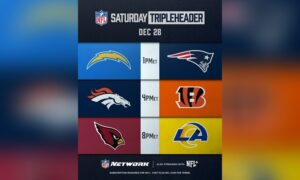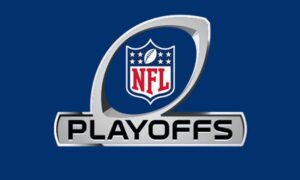The Denver Broncos may be 10-3, having posted a 3-1 record over the course of the past month with backup quarterback Brock Osweiler at the helm, but that doesn’t change the fact that, offensively, they have been playing some profoundly bad football.
To begin with, the Broncos have only scored 76 points in Osweiler’s four starts, and 89 total points in the five games that he has played. In other words, this team averages just 19 points per game on offense when he starts, and has averaged 17.8 points per game when he plays the majority of the game.
In those five games, the team has only scored more than 17 points once, in a 30-24 overtime victory over the New England Patriots, which featured a walk-off touchdown run. At the end of regulation, they had just 24 points, which still rated as their highest point total in a game with Osweiler by a touchdown.
The Osweiler-led Broncos have scored 13, 17, 17, and 12 points in the other four games in which he has played, with the 13 points coming in the fourth quarter of a loss against the Chiefs after he replaced Peyton Manning.
Statistically, his numbers do not necessarily look terrible. He has completed 108 of 170 passes for a completion percentage of 63.5, throwing for 1140 yards, which is a bit low at 6.7 yards per attempt. He has thrown only three interceptions, but he also has thrown just five touchdown passes. He has a passer rating of 85.4, but he has also been sacked a very high 17 times in 187 drop backs, or about 9.1 percent.
But let’s go deeper into the figures, just because we can, to see just how this offense has performed with Osweiler under center. He entered about midway through the third quarter against the Chiefs. His first of four drives resulted in a three-and-out, and his second drive ended with an interception. His final two drives ended in touchdowns.
The following week, in his first career start, the Broncos put up 17 points as the defense held the Bears to 15. They had 11 total drives that were not kneel downs, and of those 11, the offense went three-and-out four times.
In the win over the Patriots the following week, the offense had the ball 15 times, and astoundingly when three-and-out eight times, with one of those drives ending with a third-and-four interception that Osweiler threw.
Moving to the following week, in which the offense scored just 17 points, but the defense held the Chargers to just three, the Broncos had 10 non-end-of-game drives, of which three resulted in a three-and-out. The offense put up 10 points, seven coming from a pick six.
Finally, last week, Denver lost 15-12 to the Raiders, in which the Broncos had 13 drives. In five first-half drives, they scored four field goals and went three-and-out once. Technically, they went three-and-out five times overall, though a sixth drive, on which a completed pass on third down resulted in a first, the play ended in a lost fumble.
During the Osweiler era, the Broncos have had the ball for 53 meaningful offensive possessions, and 21 of those drives ended in just three plays without achieving a single first down. That is just under 40 percent of their possessions. By the looks of things, Denver desperately needs its defense to win this game, which is no surprise.








